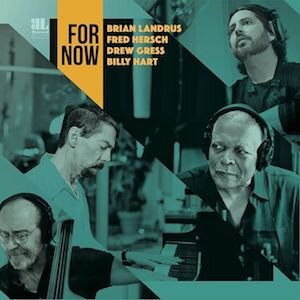Label: ECM Records, 2020
Personnel - Jon Balke: piano, sound processing
Resisting categorization, the music of the Norwegian pianist Jon Balke, a longtime ECM recording artist, can be sublime, rousing and touching, all at the same time. On his third solo piano recording, Discourses, Balke is deep inside his piano playing. With a sense of dignity and penchant for exploration, he emanates a genuine intimacy from statements that are juxtaposed with processed soundscapes, creating absorbing narratives inspired by the overwhelming lack of dialogue and polarized speech in the political context we’re living in. Hence, language appears as a crucial factor here, with Balke employing specific composed ideas as a vehicle for improvisation, as well as sound processing to complement his conceptual thinking.
The opener, “The Self and the Opposition”, immediately showcases his skilled command of the instrument, from which he draws coiled and hasty lines rich in both emotional depth and aesthetic function.
“The Facilitator” feels like a pastoral poem whose relaxation is disturbed by the tension that comes from jarred processed sounds. Its tautness, however, differs from “The Polarization”, whose enigmatic chordal work is infused with somber colors. A completely different mood, more dreamy and wondrous, is offered on “The Container”, where the inspired melody is wrapped in a comforting harmonic framework and tasteful, innocuous effects.
Percussively cluttered and busy, “The Assumptions” draws from modern classical music, but it’s “The Certainties”, an astute, even-tempered sculptural piece irradiating transcendental light, that promptly touches my heart.
The pure erudition of “The Suspension” culminates with an atmospheric ending, whereas the meditative “The Why” establishes an elegiac tone that searches for beauty. Conversely, “The How” moves ahead with enchanting ebbs and flows while living in a mix of suspension and resolution.
Nearly behaving as a broken fugue in its initial phase, “The First Argument” carries a singing quality in the digitally manipulated outro. This new poise and freshness had already been found on “The Second Argument”, an elegantly outlined piece that comes first in the song alignment.
This is a dazzling album from a fascinatingly complex musician who, without refraining from innovate, preserves his exceptional musical identity.
Grade A
Favorite Tracks:
03 - The Container ► 05 - The Certainties ► 06 - The Suspension










































